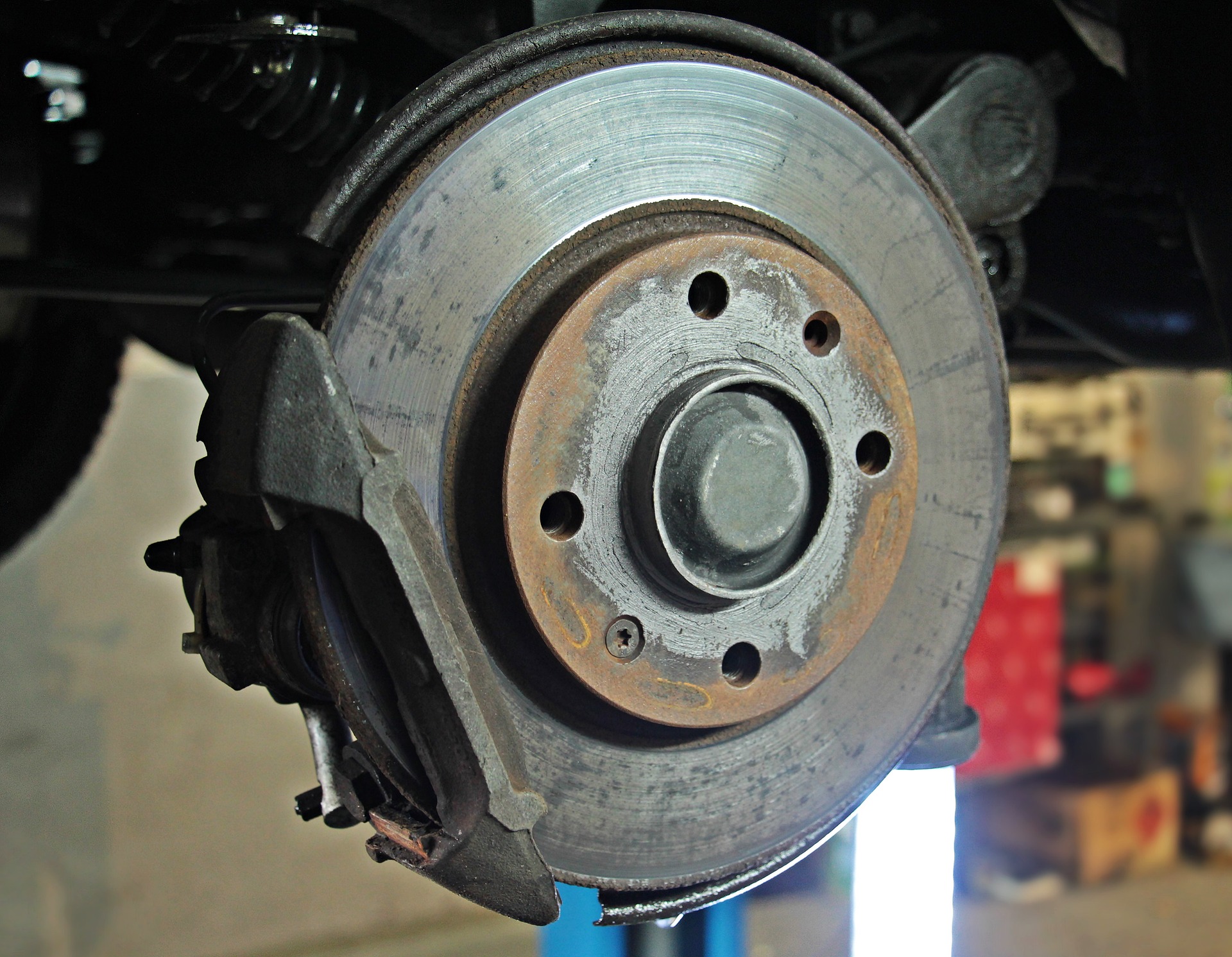
Image via Pixabay.
Driving without good brakes can be exceptionally dangerous. Your brakes allow you to control your speed, and if they’re not working correctly you could be involved in a serious accident. Your Ford dealer in West Liberty, KY is here to help you when you need a brake repair. These are some of the signs that your brakes need to be worked on.
Visible Damage
You can see certain brake problems by looking through the spokes of your wheels. When you look between the spokes, you can see the wheel rotors, the calipers, and the brake pads. Any of these components could be failing. Your wheel rotors, for example, should be flat and smooth. If you see excessive scratches or worse gouges on the surface of the rotor, your brake pads have worn down and are damaging the rotors.
The brake pads sit inside the calipers just above the wheel rotors. You’ll be able to see the friction material covering the pads. If the material covering is less than 1/8″, the pads will need to be replaced. This visual check doesn’t tell you about other less visible potential problems. If any of these parts don’t look right call our service department immediately.
A Soft Pedal
When you step on the brakes, they should offer resistance. The more pressure you apply, the more your pedal should resist. This shows that your braking system is working correctly. The resistance is due to the pressure in the braking system. If you step on the brakes and they seem to have little resistance, you have a brake problem.
The lack of resistance could be caused by an air bubble that’s worked its way into one of the brake hoses, or it could be due to a lack of brake fluid. A lack of brake fluid means your brakes won’t have the necessary pressure to work as effectively as they should. Your braking will be more difficult, and it will take longer for your car to come to a stop.
A Hard Pedal
This is the opposite of a soft brake pedal. In this case, your brake pedal displays serious resistance when you step on it. It requires a large effort to apply your brakes instead of the normal easy pushing on the pedal. There are two main causes of a hard pedal, contaminated brake fluid or a damaged vacuum brake booster.
Over time, your brake fluid can absorb small quantities of water, and it can also absorb contaminants in the braking system. These contaminants will reduce the hydraulic power of the fluid and force you to apply more pressure for the brakes to work. The vacuum booster creates a vacuum from the intake manifold. This vacuum is used to increase the force applied when you step on the brake. A hole in the booster will disable the vacuum assistance and make braking very difficult.
Our technicians can fix these and any other problems. Call us today at Hutch Ford.



